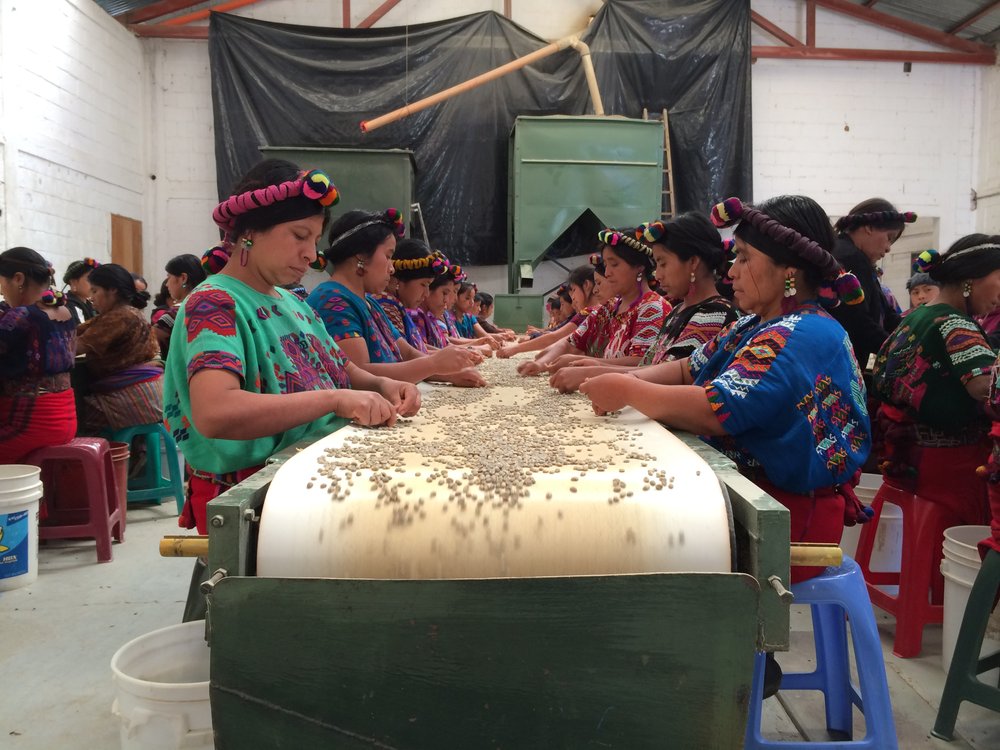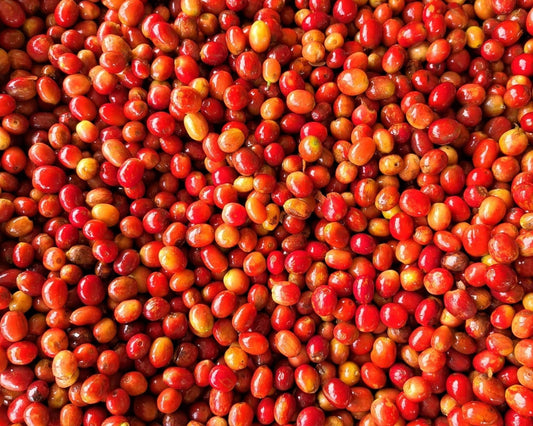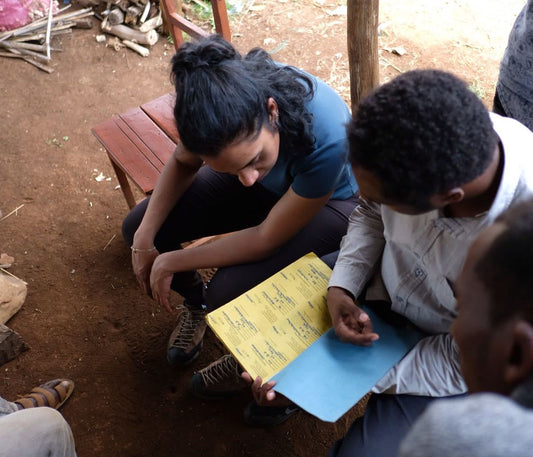Chajul, Guatemala
In September 2023 we presented a Discover Monthly from our brand new partnership with Chajulense farmers in Guatemala. We went through all the steps of partnership building and it took us around two years to make this partnership result in coffee in your cup.
Why it took so long has to do with a couple of things like logistics, organization, mutual understanding of what is the right quality, and the window of opportunity for commitment due to the harvest calendar.
But in the case of Chajulense it was, above all, the challenge to gain their trust that took time. “Who are these Wakuli people? Is direct export good or does it present more risks to an already difficult business?”. Valid questions for any company getting into a new partnership. But even more so for this producer group because of their recent history. The Coffee Trust, a locally active support organisation, wrote a great article about the Chajulense. Here are some of our takeaways:
Deep in the misty mountains live the Chajulense
In the Western Highlands of Guatemala lie the Cuchumatanes Mountains. The weather in the Cuchumatanes can be wet, raw, and cold. It can cut you like a machete. On other days, it can be so blistering hot you can get third degree burns in the shade. Deep in these mysterious, rugged mountains live the Chajulense [cha-hoo- LENZey] people, a sect of Maya Ixil [ee-SHEEL] people who have made these mountains their home for thousands of years.
Like most indigenous people, the Chajulense lived on the same land for centuries, caring for it, surviving on it, but never owning it. Land ownership was never a thing. Well, it was to the new rulers of Guatemala in the 19th and 20th century, who took more and more land from unsuspecting indigenous people. After a reformist president was removed from power in the 1960s, the military moved in.
Endless spiral of violence
Because of its secluded location in the mysterious and unrelenting Cuchumatanes Mountains, Chajul became a preferred hiding place for rebels from all over Guatemala fighting the government and military. When the military found their way to Chajul to root out the resistance the rebels fled deeper into the forest, leaving the Chajulense people exposed and unprotected. Many of them were brutally killed for providing a haven to the rebels. After the military pulled out, the rebels returned and started their own killing spree when they suspected people were collaborating with the military. This was the beginning of a decade-long spiral of violence. Each time these forces came and left, the Chajulense people were brutally caught in the middle.

Fast forward to the early 1990s
After a number of priests had been killed in their attempts to protect the people of Chajul, a new priest, Rosolino Bianchetti of Italy, moved to Chajul to pick up the challenge of building up the community where his predecessors had lost their lives trying to do the same. He started a small coffee association that gave the local farmers a glimmer of hope for the future. This is how Asociación Chajulense was born, and how coffee became part of the spirit of the Chajulense people. After the decades-long civil war ended in 1996, the Asociación Chajulense provided one of the few economic opportunities in Chajul and became the first fair trade, organic coffee association in Guatemala. In an effort to diversify farmer income, Rosolino created a honey project, a women’s textile project, a cardamom project, and a cheese factory. Rosolino was a social entrepreneur in tattered robes.
Since then it has been a rocky road for the farmers in the Chajulense area, being hard hit by Covid-19, two consecutive severe hurricanes, the coffee rust disease with no cure, a coffee market price that crashed, and demand for their coffee diminishing in the last years.
So you get the point right? These farmers will take their time to start a partnership based on mutual trust. That is why we at Wakuli are super motivated to make it work! We believe fervently that a solid relationship, predictable sales, high prices for their coffee, and support for quality improvement are all ingredients for a better future for Chajul.
Guatemala, a brand new partnership



